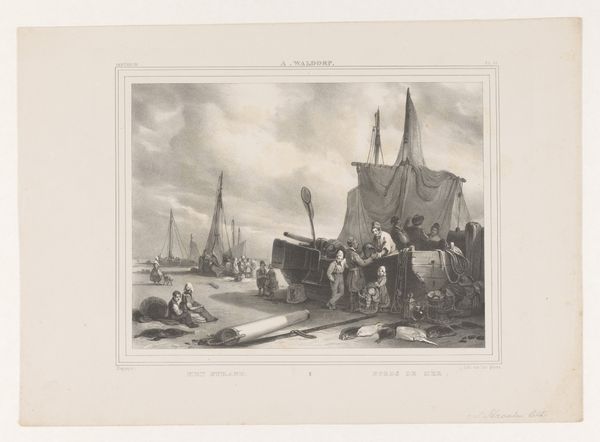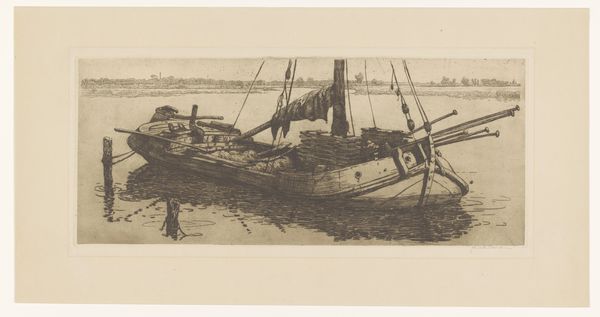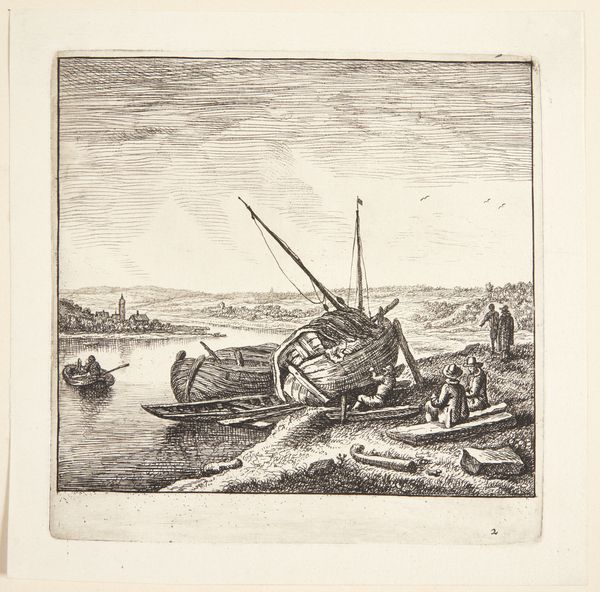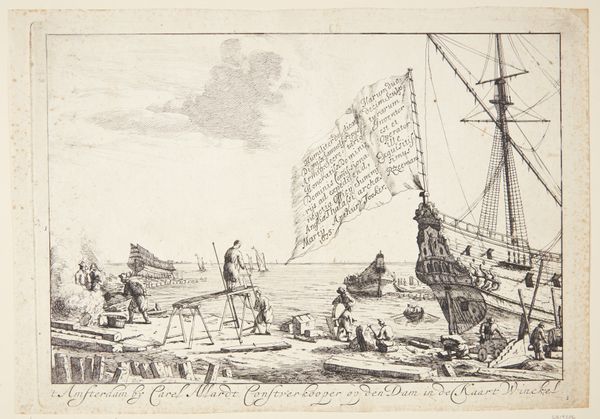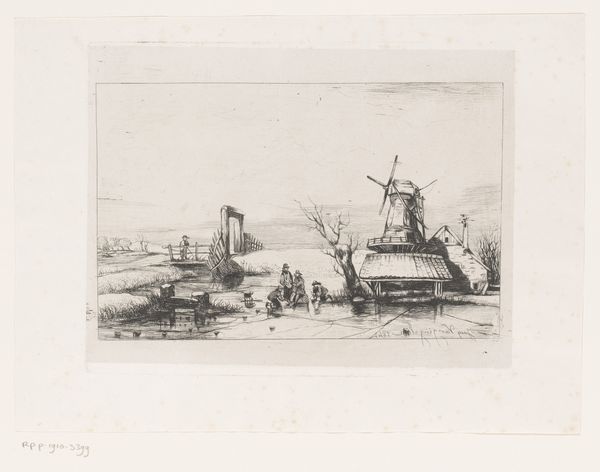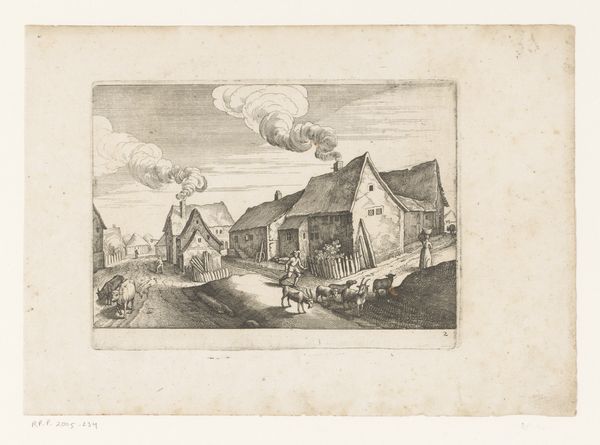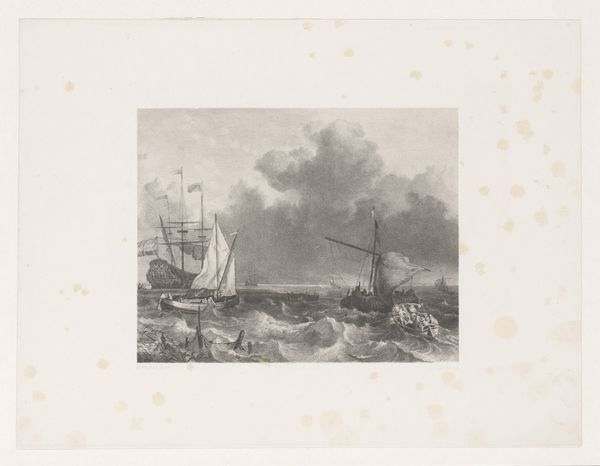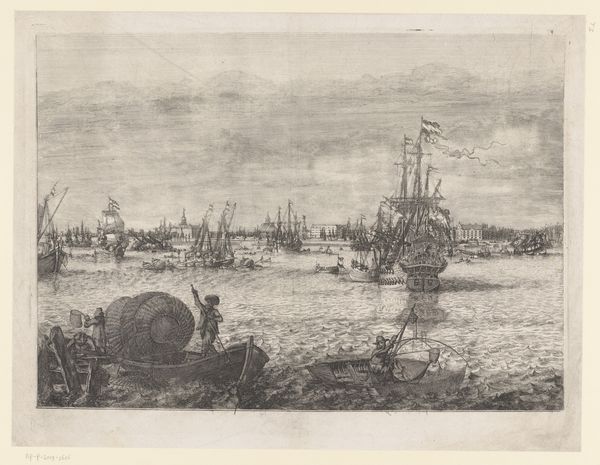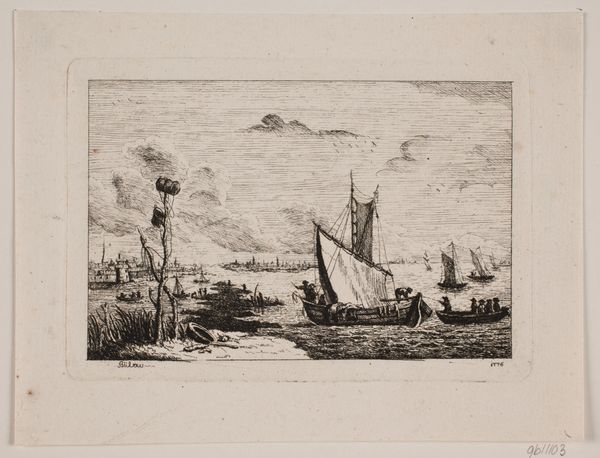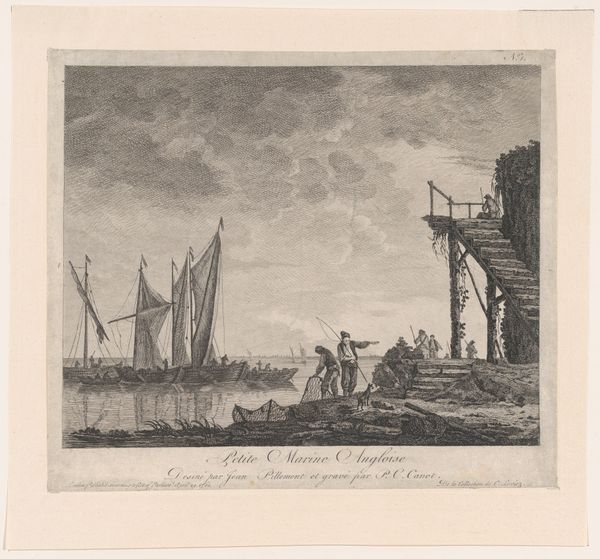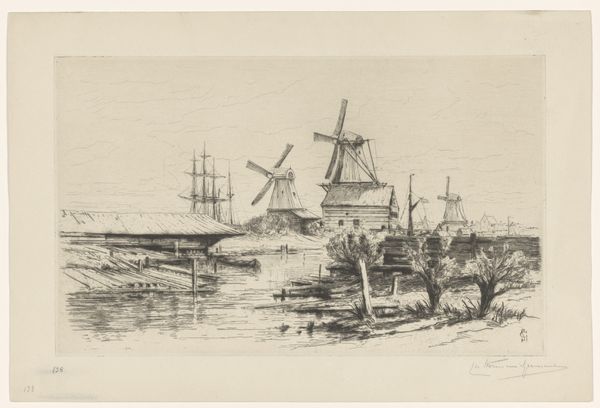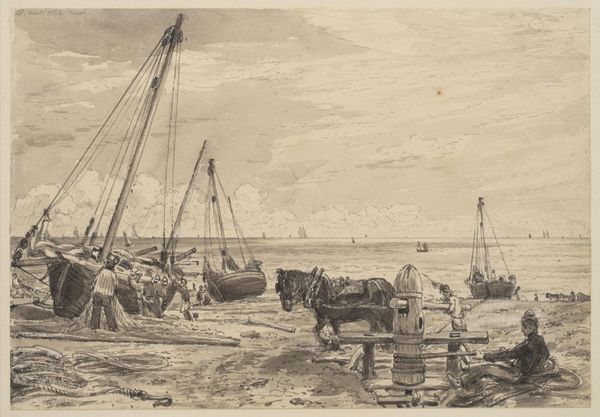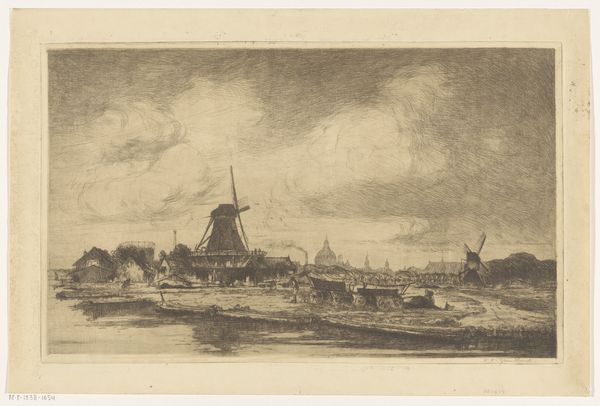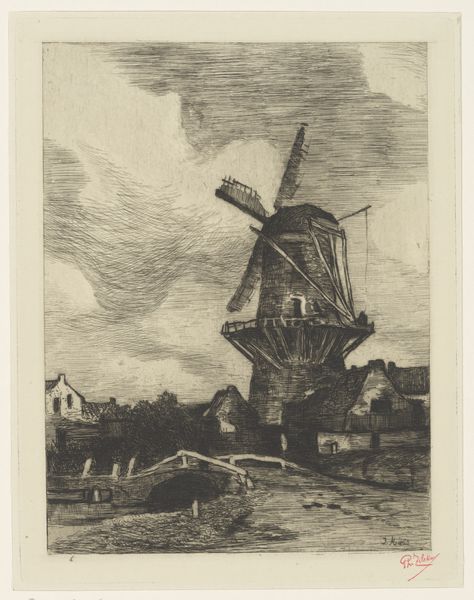
Dimensions: height 475 mm, width 640 mm
Copyright: Rijks Museum: Open Domain
Curator: This is "Heiwerk," a 1930 work by Otto Hanrath. The title translates to "Pile Driving." It's interesting how he positions these tools of modernity alongside more traditional methods. Editor: Immediately, I’m struck by the stark contrast—almost a visual battle—between the brute force of the industrial pile driver and the seemingly docile horse. It evokes questions of labor, progress, and at whose expense? Curator: Indeed. Notice the textures. The rough, almost frenetic lines of the pile driver’s machinery contrast sharply with the smoother shading of the horse’s coat. It emphasizes the physical strain inherent in both the mechanized and animal forms of labor. The making is the message. Editor: And if we situate this image in the historical context of 1930, we must consider the economic hardships and class divisions present during the interwar period. Hanrath forces us to confront the realities of industrial advancement on human and animal life. How do you see race, class, and gender implicated here? Curator: Absolutely, and I think that by portraying both mechanical and animal labor with such stark realism, Hanrath avoids romanticizing either. There’s a deliberate exposure of the processes that underscore urban expansion. The material cost becomes palpable. We can consider where such industry happened and where women could enter those professional environments in those decades. Editor: Yes, it pushes against a clean narrative of "progress" by visually centering labor. What is valorized, and at what cost? The city in the background, with its steeple and tidy buildings, looks idyllic, yet this print reminds us of what lies beneath the surface, quite literally. This seems to be at the nexus of rural/urban, pre-industrial/industrial. It challenges viewers to acknowledge what undergirds “progress”. Curator: This image shows Hanrath's dedication to truthfully portray processes and places. I’m left considering what isn't often seen and accounted for during expansion, even now. Editor: Agreed. It leaves us to consider whose bodies bear the weight, both past and present, in constructing the worlds we inhabit. An uncomfortable, vital reminder.
Comments
No comments
Be the first to comment and join the conversation on the ultimate creative platform.
